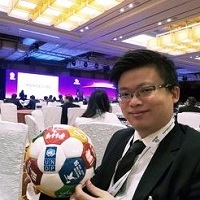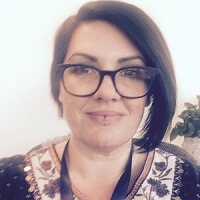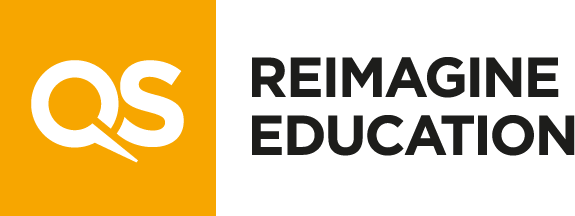GENOSIS: A NEW FRAMEWORK TO SUPPORT THE DELIVERY OF NATIONAL CURRICULA
CENTER FOR CURIOSITY AND ACADLY CO-SPONSOR THE CULTIVATING CURIOSITY AWARD AT REIMAGINE EDUCATION 2019

Nigel Ngiam
Nigel Ngiam is Business Development Manager at educational consultancy RITE Education, and a former lecturer. RITE Education offer a range of bespoke sustainable solutions to 21st century challenges in learning and leadership for schools, colleges, universities, governments, NGOs, associations and companies, thus enabling them to achieve your aspirational goals through research, innovation, transformation and empowerment – the four pillars upon which the RITE Education Group of Companies is founded.
What do you believe to be the biggest challenge faced by educators currently?
There exists plenty of evidence that education reform in various countries struggles to achieve its desired impact, due to grandiose (but desirable) policies which exceedingly lack in effective implementation. A key reason for this, as research has demonstrated, is the disconnect between the layers of responsibility down which a blueprint has to cascade. As a result, there is little to no sustainability – and this is before taking into account external factors such as changes in government. Consequently, educational leadership at each level, both individually and collectively, is vital towards empowerment at the grassroots to establish effective bottom-up transformation.
What is the most interesting – or effective, or unique – approach or solution to education you’ve encountered recently?
In the current age where educational innovation tends to mean being at the forefront of latest technologies – AI, blockchain and AR/VR to name a few – there is a distinct neglect of “going back to basics”. Reimagining presence-based pedagogies, and embedding edtech in an effective manner, remain a huge gap in traditional learning environments. I am reminded of Jara, a Regional Award Winner at Reimagine Education last year, which provides emergency education to displaced and refugee children. This is done through a low-cost device running on solar and crank power, without requiring pre-existing infrastructure.
What currently characterizes education in your sector, at your institution, or in your nation or region?
Many stakeholders within the educational ecosystem are in need of a mindset change – from working in silos to a more collaborative mentality. (After all, it is only right that we practice what we preach to our learners!) Education institutions, employers and local communities should offer opportunities for learning which are more holistic, to nurture future-proof learners. Parents should be equipped to play a more active role in their children’s learning. Leaders – in schools, government agencies, etc. – should also be ‘leaders of learning’, while educators can be further upskilled and empowered with motivation.”

Renee Aitken
Renee Aitken, Director of Assessment and Accreditation at Colorado State University’s Global Campus, has extensive knowledge and experience in many aspects of education. Herfull-time position at Colorado State University – Global Campus includes assessment and standards, curriculum development and design, and institutional accreditation. She has supported learners as course developer, instructor, career coach, academic integrity coordinator, and a faculty mentor. She has been a guest speaker and author on instructional design, technology, assessment, and program reviews and have presented and conducted workshops for both industry and higher education. Her previous positions included managing global technical training initiatives with AT&T as director of technical training. It is her passion to assure that colleges and universities work on making higher education the best that it can be. Her credentials include an AA in Medical Technology, a BA in English Lit, an MA communication, an MS in Telecommunication Management and Engineering, a PhD in Higher Education, and over 40 certificates in a variety of subjects.
What do you believe to be the biggest challenge faced by educators currently?
The biggest challenge is managing the cost of an education. With technology now an integral part of education, there is a need to consider how to pay for technology. Students need it to succeed, faculty need it to reach the students, and the technology companies see it as a profitable market. Pushing the costs of new technology off to tuition should not be the only option. I would love to engage in more research about technology and education from the cost perspective.
What is the most interesting – or effective, or unique – approach or solution to education you’ve encountered recently?
The marriage between education and training has really never occurred in the history of higher ed. It is interesting to consider training as part of an education, but it also presents some interesting challenges. Where does it stop? How does it prepare students for the future? What happens to the general education courses we thought were essential? Do we lose some of the important elements of education when we give credit for training? We really need to think through this new phenomenon carefully. We don’t want to lose the value of a well-rounded education just to save students some money. On the other hand, we don’t want to negate the knowledge students have gained from their training.

Chantell Wyten
Chantell Wyten is an educational thought leader, curriculum designer and practitioner with over 20 years of experience in the field. She is currently working across the globe to serve +5000 school in designing and implementing international education pathways. She possesses skills in research, digital technologies and whole child development. Her interests range from embodied learning to education for future global needs.
“Being part of an international educational organization gives me the opportunity to engage with a range of educators and learners with varying backgrounds, experiences and interests. Since I became a teacher I have been seeking the answer to the ephemeral question: what should we be teaching our children? Today I am more interested in what our children can teach us, and my inquiries have moved to: what should we be teaching our teachers? What I can say for certain is that the field of education we are at the precipice of a much needed revolution – young learners are adept at questioning long held beliefs about what and how they should learn; they also have the agency and tools to craft their own solutions. Being a judge for Reimagine Education is an opportunity to advocate for individuals and collectives who have harnessed these understanding early and aspire to completely transform the experience of education, today and tomorrow. The pathway forward may not be clear or easy, but I am honoured to be part of shaping the future.”

